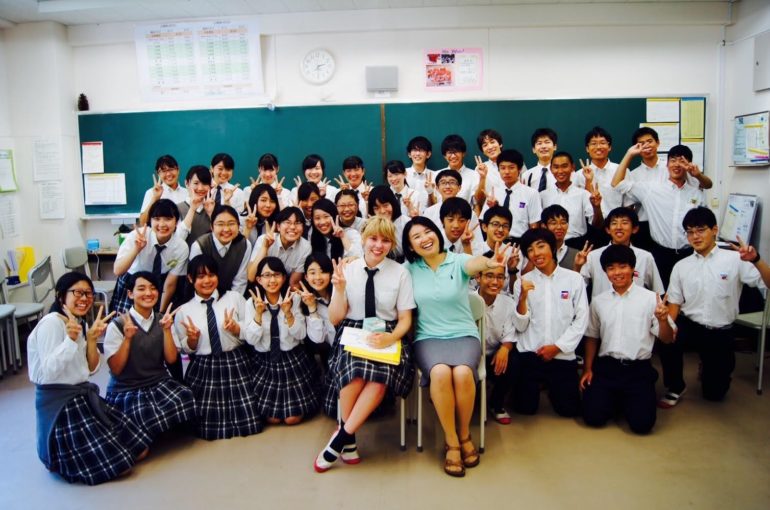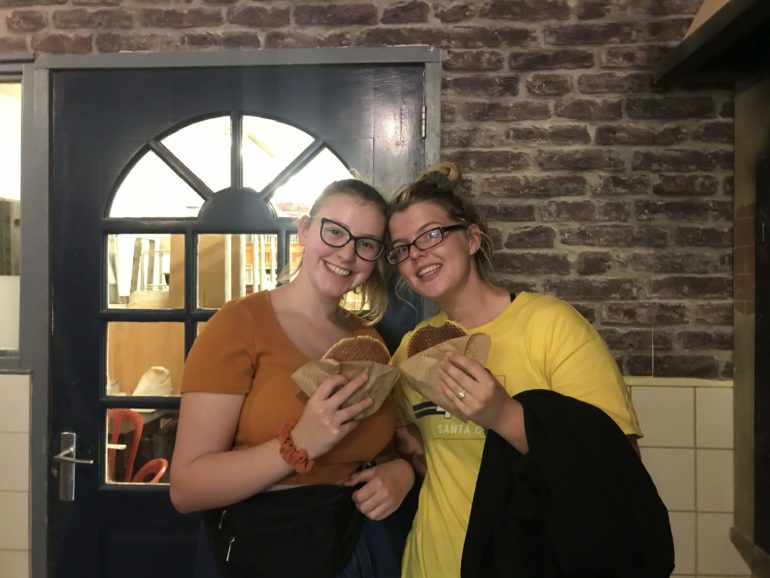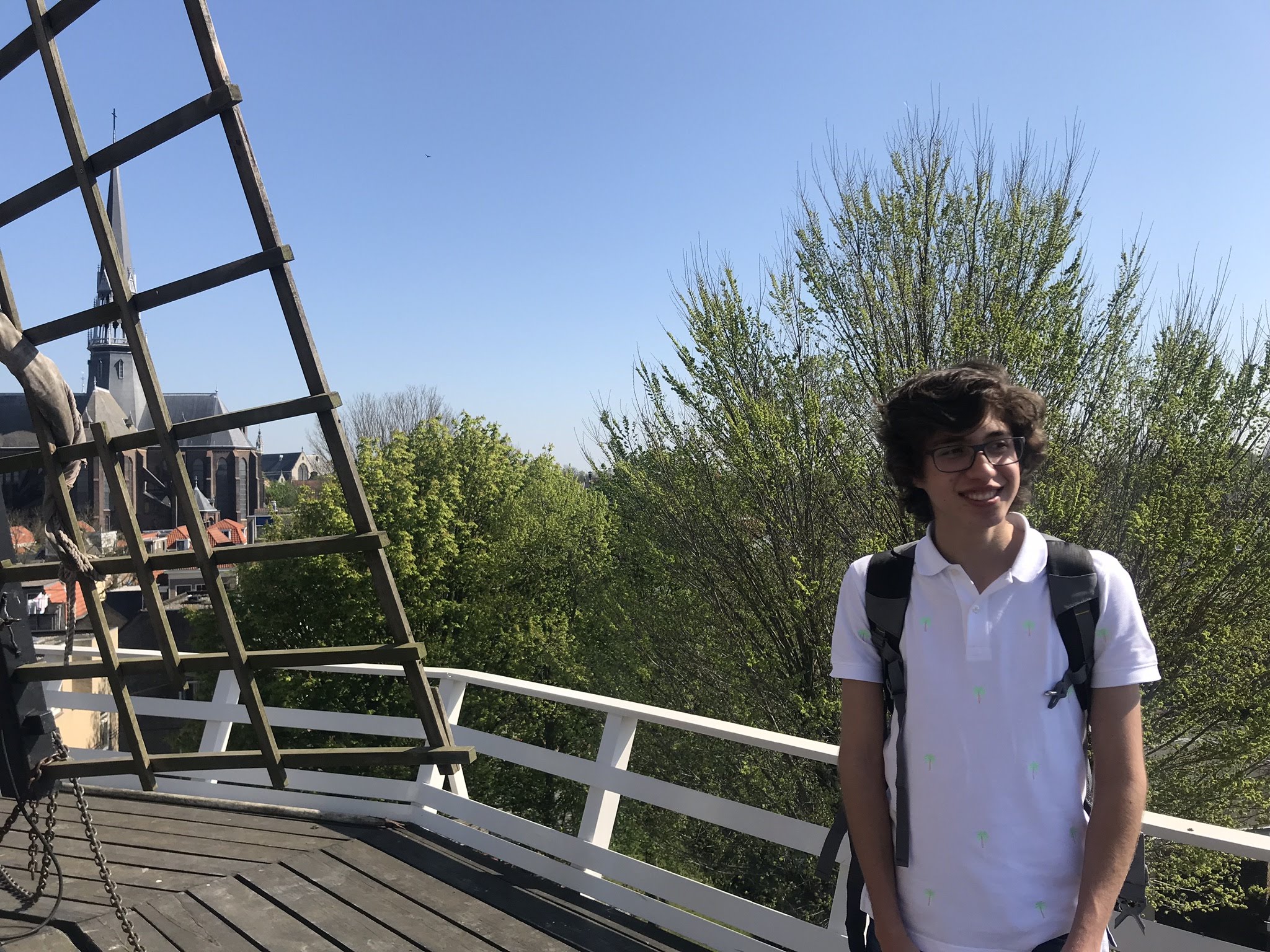- High School - Argentina ,
- High School - Australia ,
- High School - Austria ,
- High School - Belgium ,
- High School - Canada ,
- High School - Costa Rica ,
- High School - Denmark ,
- High School - England ,
- High School - Finland ,
- High School - France ,
- High School - Germany ,
- High School - Ireland ,
- High School - Italy ,
- High School - Japan ,
- High School - Netherlands ,
- High School - New Zealand ,
- High School - Norway ,
- High School - Spain ,
- High School - Sweden ,
- High School - Switzerland ,
- High School Abroad ,
- Language Camp - Canada ,
- Language Camp - Costa Rica ,
- Language Camp - France ,
- Language Camp - Germany ,
- Language Camp - Italy ,
- Language Camp - Japan ,
- Language Camp - Spain ,
- Language Camps
When you’re a parent sending your child abroad, you know there’s a lot they must prepare for: culture shock, homesickness, and language barriers. But your children aren’t the only ones experiencing a life change.
“This was definitely a learning experience for the parents as well!” says Lisa Hall, mother of high school in Sweden alum Matilda. “It was very hard to not be there to help when things were tough.”
So what can you do? Miles away from your children, how can you still support them? We asked parents of Greenheart Travel alumni share their insight on how you can best support your child while they’re abroad. Here are their tips.
Before they go abroad, talk about life when they return
“Prior to him leaving for the 6 months, we did discuss what he wanted to do at his school in the US during his junior year. He decided he would try to run for student council office while he was overseas. And unbeknownst to his dad and I – he did run, campaigned via Instagram and won the vice president spot for the upcoming junior class here in the US. The lesson to learn…. make goals with your child and then let your child be the captain of that ship while he is away.” -Bonnie Green, mother of high school in New Zealand alum Graham.
Agree on a weekly time to talk – and stick with it
Schedule a time and way to communicate in advance, that way you are both on the same page. For example, decide that they need to check-in on Sundays around 7:00 pm their time via WhatsApp. This way, you don’t need to send them texts throughout the day because you’ll already have a set time to catch up.
Mary Scott, mother of language camp in Spain alum Emmy, explains why it’s so important to give space. “While she was abroad, we made sure we weren’t constantly bombarding her with texts and skype calls which at first was difficult. However, we knew she would have a more enriching experience if she wasn’t having to think about us back in Michigan the whole time. We wanted her to be able to completely devote herself to speaking Spanish and learning about her new environment.”
For Hall, being far from her daughter was “hard in a different way when she was having so much fun, there was hardly any contact! But that was the best kind of growth for us all.”

Recognize that YOUR life is going to change
Your life at home is undoubtedly going to change. For Bonnie Green, she and her husband experienced being empty nesters for the first time.
Her advice? Take this opportunity and focus on you.
“Make a list of things YOU want to do while your child is away. My husband and I took dance lessons, had adult only (no children) dinner parties, accomplished house updates, traveled to visit our children who were away at college, visited aging parents, put in extra time at work and started hiking more.”
And that leads us to our next point…
Don’t say how much you miss them or how much you want them home
Your child will most likely be homesick at some point, and it can be really hard to go through that while hearing pleads to come home. Being asked to come back and hearing about what they are missing at home can make a hard day so much worse.
Instead, tell them that you are so excited to hear about their adventures when they are back.

Encourage them to reach out to local staff and take initiative
Part of why going abroad builds confidence and leadership skills is because travelers are expected to speak up and handle themselves. Instead of telling your teen what to do, or doing things on their behalf, allow them the opportunity to be independent. This is especially important when handling the pre-departure logistics so that they don’t feel totally lost when stepping foot in the airport. “When a problem comes up, discuss the different ways it can be solved instead of jumping in and telling them what to do.” says Scott.
The best thing you can do for your teen is to let them practice communicating with adults and learning how to manage themselves. It can be hard to trust your child to do everything right but giving them that space to grow will make them better prepared for their program (and life).
“I think it is vital that while your child is aboard that he/she become a part of their new community,” says Green. “While he did stay in touch with friends in the states, he made friends in NZ. The small town even had a send-off for him and took him to the airport.”
Read about their country and take interest when they share new knowledge
A great way to get involved in their experience is by learning more about the culture in the country in which they’re going. As you learn about your child’s new home, take note of what your child is excited about. “I was sure to listen to all the positive details, no matter how small!” says Hall.
You could practice making a tortilla española or start listening to the music of traditional Austrian brass band and surprise them with your newfound knowledge.
Greenheart staff member Allison Yates’s mom started learning Spanish when she studied abroad in Argentina. “She knew that Spanish was a huge part of my life, so it meant so much that she wanted to learn it too! It helped her feel like she understood my experience more,” says Yates.

Educate yourself on what they might be feeling – and how you can help from afar
A great way to get a sense of the mental and emotional experience of studying abroad is by completing the Greenheart Travel Atlas along with your child. This is tool for before, during, and after the cultural exchange experience that includes personal and professional development, cultural understanding and environmental awareness.
For example, if your normally independent child calls you multiple times a day when they first arrive in the country, you’ll remember it’s likely initial culture shock. You can remind them to follow the Greenheart Travel Atlas tools to overcome this stage and focus on meeting new people and spending time with their host family.
Halls says she supported Matilda by “making sure she knew I was there to talk about things, whether they were positive or negative. I tried to give her as much time as I could, but not to have it be open-ended or all the time.”
While your first instinct might be to check in more frequently, increased contact with friends and family back home only exacerbates culture shock.
Rest easy – they’re in good hands
“We had to give up our control and trust in the goodness and professionalism of others. We did our research, chose a great partner in Greenheart, and raised a strong daughter,” says Laura Foster, mother of high school abroad Costa Rica alum, Eleanor.
As parents and former exchange students, Greenheart and our in-country partners know what it’s like to be far from your family, and we work to equip students with the tools they need to succeed.

Leave a Reply